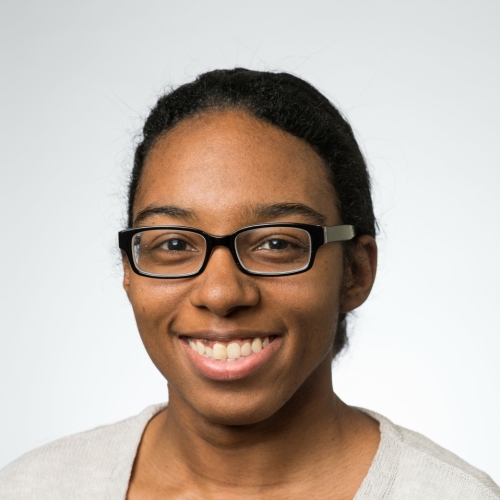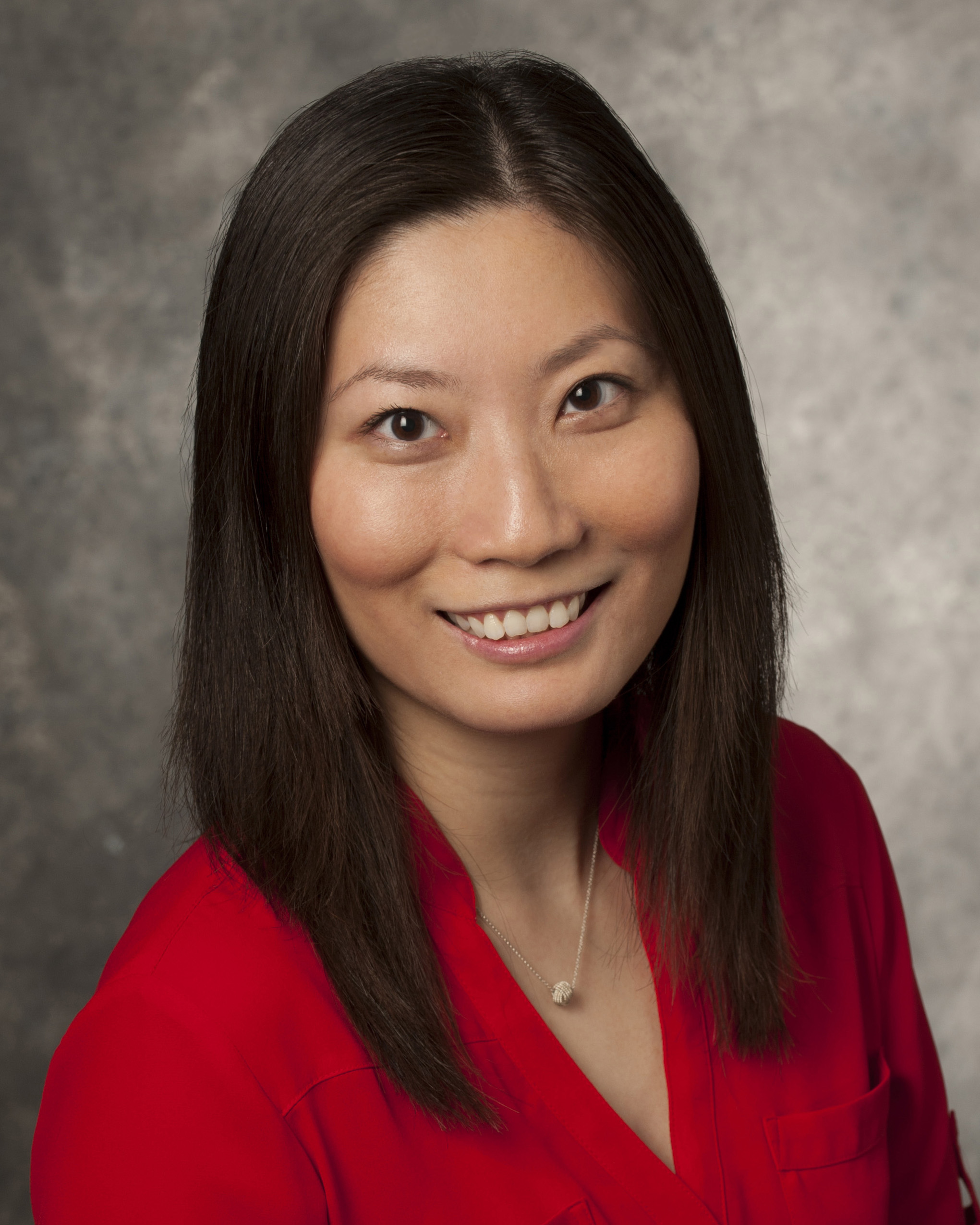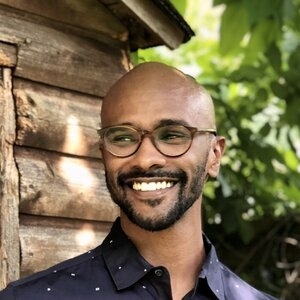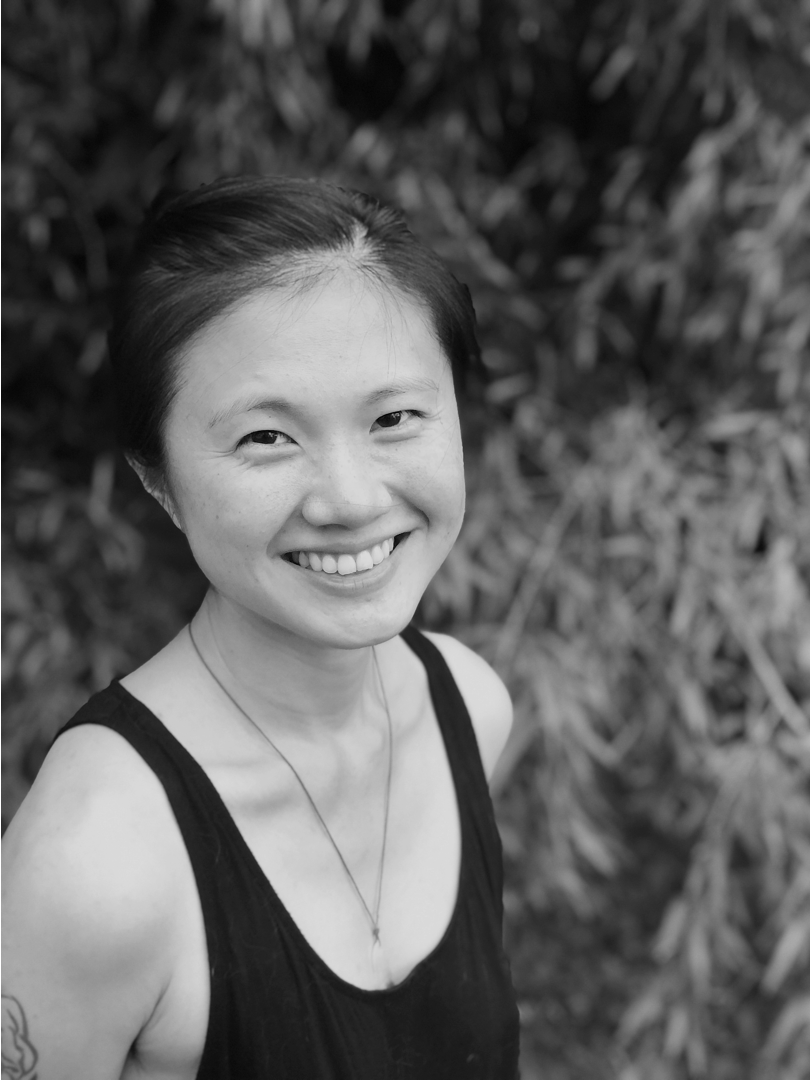Welcoming New UW Psychology Faculty
DR. DEBRIELLE (DEB) JACQUES (she/her/hers)
My broad research examines how parent and family factors affect caregiving, family functioning, and children's psychological development and risk for psychopathology. Specifically, my main line of research has two mutually informative domains. First, I am interested in better understanding how and why mental illness and addiction among caregivers/parents shapes distinct aspects of parenting. This includes parental cognitions (how parents think about parenting and children's behavior) and parental behavior (how parents interact with their children and navigate distinct parenting challenges and situations). I view parenting as a distinct developmental context through which parents' psychological challenges could dynamically alter children's mental health trajectories.
Second, I am interested in how children's psychological development and well-being are impacted by their parents'/caregivers' mental health and substance use problems. Within this topic, I am curious about how children's risk for psychopathology develops and changes over time, and whether there are developmental consequences associated with outcomes that are typically viewed as adaptive, positive, or healthy (e.g., resilience). Relatedly, I am also curious about the distinct long-term psychological benefits and consequences associated with different ways children may cope with caregiver psychopathology and family adversity.
My tertiary interest examines how broader identity, socio-cultural, contextual factors and lived experiences directly and indirectly influence parenting, family functioning, parent/child mental health, and access to treatment resources. Lived experiences of interest include family homelessness, poverty, family conflict, maltreatment and neglect, identity marginalization, racism and discrimination, and neighborhood and generational trauma. This part of my work aims to unpack how parents and children from marginalized backgrounds develop and experience mental health challenges, and how we as social scientists can better address their needs (e.g., through new culturally-informed etiological models of psychopathology).
I examine these topics across multiple levels of analysis, exploring the unique processes and pathways through which individual, interpersonal, familial, and broader contextual factors may interact (or work in tandem) to promote or hinder psychological well-being in parents and children.
Hometown: Philadelphia, PA
Prior educational institutions/degrees: The Pennsylvania State University (B.S.); Rutgers, The State University of New Jersey (M.A.); University of Rochester (PhD)
Tell us about your research areas/interests! What got you excited about that particular area of inquiry?
Although I'm a professor in the Child Clinical research area, I am actually trained as a developmental psychologist with research interests in child developmental psychopathology - meaning I focus on how children's mental health conditions develop and change over time. Broadly, my research focuses on intergenerational, broader familial, and contextual influences on young children's mental health and well-being. Specifically, I study how caregivers' mental health challenges and experiences with drug/alcohol addiction impact children's psychological development in ways that promote or undermine their mental health trajectories. My research questions aim to identify how addiction and psychopathology impact caregivers' neurological functioning, cognitions (how they think about parenting, children's behavior, etc.) and behaviors (how they interact with their children in different parent-child situations) and in turn, how these disruptions in caregiving impact children. We also know that children cope with early family challenges in different ways. Thus, I'm interested in better understanding the factors that predict and influence which coping strategies children use to navigate adverse family contexts, how children use these strategies, and how different strategies may promote or hinder children's long-term psychological well-being. My developmental psychology background helps me integrate parenting and developmental processes and theories with clinical/child clinical psychology approaches.
I was always interested in working with families and children experiencing complex and significant adversities. I've previously worked with mothers who had engaged in child maltreatment and families experiencing homelessness, but my passion has remained with families navigating drug and alcohol addiction. My professional experiences emphasized the need to adopt and incorporate a more nuanced and empathetic approach to studying family challenges and childhood adversity. However, I am also the child of two parents who are still struggling with drug addiction and mental health challenges. I've seen how those challenges affected them, the whole family, and especially my siblings and myself throughout our lives - especially when we were younger. I used to have a lot of shame about my personal connection to my work; I saw it a hindrance or detriment...but now, I view and value it as an asset since my lived experiences truly inform and have transformed how I approach my research, the questions I ask, and how I interpret and disseminate my research. There's great personal meaning to me when I think about the families and children I work with since so many of those children remind me of myself and so many of those parents mirror my own. So I'm very excited to contribute to work that could positively impact these families in different ways.
What excites you about UW/Seattle? What are you most looking forward to?
I'm excited about several things about UW and Seattle. I'm mainly excited to work in a public-facing institution that recognizes the role and power that research, teaching, and service play in changing and elevating the surrounding environment. Relatedly, I applied to UW given our emphasis on interdisciplinary collaboration and the translation of research into meaningful, tangible programs that support children and families. Lastly, I'm excited to have so many amazing colleagues - especially student colleagues who often are the lifeblood of our community. Their energy, enthusiasm, passion, and innovative ideas - just the way they interact with the world - are incredible assets. I'm really looking forward to engaging with them via research, classroom settings, and service. And Seattle is a beautiful city that's full of adventure and so many opportunities to grow in diverse ways.
What are your hobbies/activities outside of academia?
Painting (trying to get into that; I'm currently really bad at it), volunteering, mentoring, reading, creative writing, taking long walks, watching documentaries, talking to people from different walks of life, and just learning about the world.
DR. PRISCILLA LUI (she/her/hers)
My research concerns how people from diverse sociocultural backgrounds make sense of the world, and how their lived experiences associated with culture, ethnicity, and race affect their psychopathology and addictive behaviors. Using a social ecological framework, I study intercultural contact (e.g., acculturation, discrimination), close social relationships (e.g., romantic relationship, intergenerational conflict), and intrapersonal characteristics (e.g., personality, cultural orientations) as determinants of psychopathology, such as alcohol (mis)use. I also am interested in measurement development and psychometrics, and metascience (i.e., research about the research process).
Hometown: Hong Kong (but a Seattleite at heart!)
Prior educational institutions/degrees: B.S. in Biology and Psychology, University of Washington (go huskies!); M.A. in Psychology at California State University Los Angeles; Ph.D. in Clinical Psychology at Purdue University
Tell us about your research areas/interests! What got you excited about that particular area of inquiry?
I am interested in how people from diverse sociocultural backgrounds make sense of the world, and how their lived experiences associated with culture, ethnicity, and race affect their psychopathology symptoms and addictive behaviors. Throughout my undergraduate and graduate training, and in reading most "mainstream" psychological scientific articles, I noticed little discussions of cultural similarities and differences in what make people tick. Similar to the experiences of other immigrants and people of color, it was my impression that group-distinctive psychological processes were understudied in our science. I also observed first hand through my clinical practice that people from many groups who face social disadvantages and unique challenges (e.g., people of color, international students, people living in rural areas) were not receiving or "responding to" professional mental health services that were commonly available in the mainstream American society. My goal is to conduct research as a way to not only understand (vulnerabilities and assets of) but also advocate for and serve these groups so that the psychological literature, workforce, and services reflect the diverse experiences that the population brings.
What excites you about UW/Seattle? What are you most looking forward to?
I adore the Pacific Northwest and am thrilled to be returning to my alma mater. I look forward to enjoying the natural beauty (including the cherry blossoms in the Quad!), being close to the coast and bodies of water, and having abundant seafood and coffee the city has to offer.
What are your hobbies/activities outside of academia?
In the past few years, I have enjoyed various physical activities such as kickboxing, indoor rock climbing, and heated yoga and pilates. I like playing virtual reality games. As a self-proclaimed foodie, it has been a lot of fun trying different cuisines, restaurants, and recipes. Whereas the Midwest and Southwestern areas have been quite flat to hike, I am excited to take advantage of the parks and trails in the Seattle area.
DR. SAMA AHMED (he/him)
Welcome! I’m Sama — I direct the Ahmed lab.
I am a Weill NeuroHub term assistant professor in the Department of Psychology at the university of Washington, Seattle.
I completed my Ph.D. training in neuroscience at UCSF and my postdoctoral tenure in the Murthy lab at the Princeton neuroscience institute. My research interests span systems neuroscience, cognitive psychology, evolutionary biology, and genetics. Currently, I am excited to delve deeper into the neurobiology of multitasking as a way to study how nervous systems generate and constrain different behaviors.
As a researcher, I am keen to practice science within alternate value systems that promote equity, safety, creativity, and imagination.
I acknowledge that the Ahmed lab will operate on stolen Coast Salish land, on the ancestral lands of the Suquamish, Tulalip, and Muckleshoot Tribes. This acknowledgement is one way of resisting the erasure of indigenous histories and knowledge, and foregrounds our efforts to work differently in relationship to ourselves, each other, and the spaces wherein we work and live.
I am thankful to the BRAINS fellowship, the Burroughs Wellcome Fund, Weill NeuroHub, the Simons Collaboration on the Global Brain, and the UW for supporting our research.
Hometown: Philly, PA
Prior educational institutions/degrees: Bioengineering BSE at U. of Penn, Neuroscience PhD at UCSF
Tell us about your research areas/interests! What got you excited about that particular area of inquiry?
Our lab studies the neurobiology of multitasking. This research program, at its core, is situated in understanding how and why nervous systems, and the behaviors they produce, are constrained. We believe that understanding these constraints will reveal generalizable rules the link brains, bodies, and behaviors.
What excites you about UW/Seattle? What are you most looking forward to?
So much excites me about UW and Seattle ! Everywhere I look I see mountains and water and wonderful people; I feel a great expanse. The scientific community at UW, and especially in the Psychology Department, has been incredibly welcoming and supportive. I am looking forward to learning, contributing, and collaborating with folx all across campus.
What are your hobbies/activities outside of academia?
I love music of all kinds, and books are dear friends.
DR. YAN WANG (she/her)
Dr. Z. Yan Wang is an evolutionary neuroscientist: she studies the origins of neural, molecular, and behavioral complexity in social insects and cephalopods. Dr. Wang is currently a Postdoctoral Fellow in the Lab of Dr. Sarah Kocher in the Department of Ecology & Evolutionary Biology at Princeton University, where she studies the impacts of social isolation on nervous system development and behavioral expression of bumblebees. Dr. Wang received her PhD in Neurobiology at the University of Chicago, in the Lab of Dr. Cliff Ragsdale, where she characterized the neuroendocrine mechanisms of maternal behaviors and death in octopuses. For her undergraduate degree, Dr. Wang studied Biology, English Literature, and Asian American Studies at Cornell University in Ithaca, NY.
In Fall 2022, Dr. Wang will start her own lab at the University of Washington in Seattle, as an Assistant Professor in the Departments of Psychology and Biology. She is interested in pursuing the evolutionary and social dimensions of aging. She plans to use emerging invertebrate model systems, such as the bee and the octopus, to investigate how the nervous system organizes, encodes, and mediates end-of-life transitions and death. Her lab will use multiple high-dimensional omics, behavioral, and molecular approaches to uncover fundamental rules about the aging nervous system. In 2021, Dr. Wang was selected as an inaugural IMPACT Fellow by the National Postdoc Association, an esteemed fellowship for leadership advancement designed to increase access to opportunities for marginalized early career researchers. She was also selected to the prestigious Allen Institute’s Next Generation Leader Council.
In addition to research, Dr. Wang is deeply committed to teaching, scientific pedagogy, outreach, and creating an enabling learning environment for all. Both in and outside of academia, she has been dedicated to building gentler and more just communities, through activities such as organizing with the Princeton Mutual Aid, curating a monthly Lady Lit Book Club, and developing a graduate-level course on Racism in Neuroscience. She also recently spoke up for struggling postdocs everywhere in an article in The Scientist on how the pandemic amplifies postdoc struggles.
Hometown: Philadelphia, PA
Prior educational institutions/degrees: BA Cornell University; PhD University of Chicago; Postdoc Princeton University
Tell us about your research areas/interests! What got you excited about that particular area of inquiry?
What excites you about UW/Seattle? What are you most looking forward to?
I'm loving Seattle so far--it's a really nice mix of city with natural beauty. I'm looking forward to settling into local communities here, getting to know my neighbors and neighborhood, getting to know the student body, and learning how best I can contribute positively to my new home. So far, it's easy to say that I love that there is a large group of new faculty. Not only is it great to have a support group, but I've noticed even in my short time here that it enables me to think very creatively about my research. I can see many collaborations with other scholars in this department. One thing I'm very excited about is developing my graduate course, Racism in Neuroscience. I think the scholarly and cultural environment of this department is the perfect place to grow a course that looks at the histories and power dynamics of our field.
What are your hobbies/activities outside of academia?



